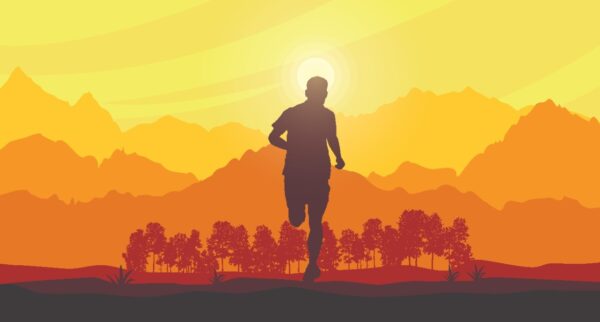
Hobbies for Healing: Engaging Activities to Combat Alcohol Abuse
Alcohol detox is a critical first step for individuals seeking to overcome alcohol addiction. While detoxification addresses the physical aspects of addiction, the journey to sobriety often requires more than just medical intervention. Engaging in fulfilling hobbies can play a significant role in this process, providing not only distraction but also a sense of purpose and community. This article explores some of the best hobbies to take up to battle alcohol abuse, highlighting their benefits in fostering a healthier lifestyle.
One of the most effective hobbies for individuals recovering from alcohol abuse is exercise. Physical activity has numerous benefits, both mental and physical. Exercise releases endorphins, the body’s natural mood lifters, which can help alleviate symptoms of depression and anxiety often associated with alcohol withdrawal. Activities such as running, cycling, or group fitness classes can also provide a sense of achievement and boost self-esteem. Moreover, joining a local sports team or fitness group can foster social connections, reducing feelings of isolation that often accompany alcohol addiction.
Another excellent hobby to consider is creative arts, such as painting, drawing, or crafting. Engaging in creative activities allows individuals to express their emotions in a constructive way. Art therapy has been shown to help individuals process their feelings, reduce stress, and improve overall mental health. For those who may struggle to articulate their thoughts and emotions verbally, art provides a non-verbal outlet for expression. Additionally, participating in art classes or workshops can create opportunities for social interaction, further supporting recovery.
Gardening is another therapeutic hobby that can significantly benefit those battling alcohol abuse. Working with plants not only provides a sense of accomplishment but also promotes mindfulness and relaxation. The act of nurturing a garden can serve as a metaphor for personal growth and healing. Moreover, spending time outdoors has been linked to improved mood and reduced stress levels. Whether tending to a flower bed or growing vegetables, gardening encourages individuals to connect with nature, which can be incredibly grounding during the recovery process.
Cooking and baking are practical hobbies that can also support recovery from alcohol abuse. Learning to prepare healthy meals can empower individuals to take control of their nutrition, which is often neglected during periods of heavy drinking. Cooking can be a creative outlet, allowing individuals to experiment with flavors and ingredients. Furthermore, sharing home-cooked meals with friends or family can foster social connections and strengthen relationships, providing additional support during the recovery journey. Cooking classes can also be a fun way to meet new people who share similar interests.
Volunteering is another fulfilling hobby that can significantly impact recovery from alcohol abuse. Helping others can create a sense of purpose and fulfillment, counteracting feelings of guilt or shame that often accompany addiction. Whether volunteering at a local shelter, participating in community clean-up efforts, or mentoring others in recovery, giving back can provide a valuable perspective on personal struggles. Volunteering also fosters social connections, allowing individuals to meet new people and build a supportive community.
For those who enjoy reading, joining a book club can be an excellent way to engage with literature while fostering social connections. Reading can serve as an escape and a means to explore different perspectives and experiences. Book clubs provide an opportunity to discuss ideas and themes with others, promoting healthy conversations and reducing feelings of isolation. Additionally, many book clubs focus on personal growth and recovery themes, offering valuable insights and support.
Mindfulness practices, such as yoga and meditation, have gained popularity as effective tools for managing stress and promoting mental well-being. These practices encourage individuals to focus on the present moment, helping to reduce anxiety and negative thought patterns that can lead to relapse. Yoga combines physical movement with mindfulness, promoting both physical and mental health. Many communities offer yoga classes specifically designed for individuals in recovery, creating a supportive environment for personal growth.
Learning a musical instrument is another rewarding hobby that can help individuals cope with alcohol abuse. Music has a profound effect on emotions and can serve as a powerful outlet for expression. Playing an instrument requires focus and dedication, which can distract from cravings and negative thoughts. Additionally, joining a band or taking music lessons can foster social connections and create a sense of belonging, both of which are essential during recovery.
Finally, exploring new interests through travel or local excursions can provide fresh perspectives and experiences. Travelling encourages individuals to step outside their comfort zones, promoting personal growth and resilience. Even local day trips can introduce new environments and activities that inspire joy and excitement, counteracting the monotony that can sometimes accompany sobriety.
In conclusion, engaging in hobbies can play a vital role in battling alcohol abuse and supporting recovery. Whether through exercise, creative arts, gardening, cooking, volunteering, reading, mindfulness practices, music, or travel, these activities provide individuals with constructive outlets for their emotions and foster social connections. By incorporating fulfilling hobbies into their lives, individuals can build a healthier lifestyle, reduce the risk of relapse, and enhance their overall well-being. Embracing new interests not only enriches daily life but also serves as a powerful tool in the journey toward lasting sobriety.












































